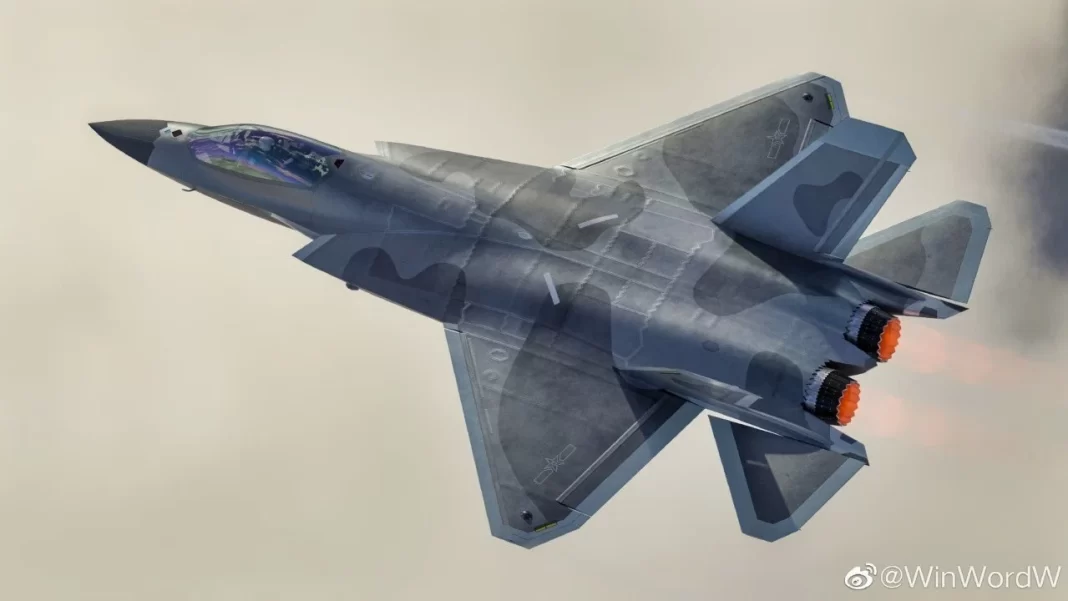Pakistan plans to purchase 40 advanced J-35 stealth fighter jets from China, marking a significant development in the military partnership between the two countries. This deal, if finalised , will make Pakistan the first international customer of China’s cutting-edge fifth-generation fighter jets.
Replacing an Ageing Fleet
The Pakistan Air Force (PAF) is looking to replace its ageing fleet of American F-16s and French Mirage fighters. The new J-35 jets offer advanced stealth capabilities, making them a valuable addition to the PAF’s arsenal. These jets are expected to enhance Pakistan’s air combat capabilities significantly.
Reports indicate that the PAF plans to receive all 40 jets within two years. The J-35 is a land-based version of the J-31 stealth fighter and is regarded as one of China’s premier military innovations.
The acquisition of J-35 jets is expected to shift regional power dynamics, particularly in South Asia. India, Pakistan’s long-time rival, already operates advanced jets like the French Rafale and is developing its own stealth fighter program. With the introduction of the J-35, Pakistan aims to narrow the gap in aerial combat technology. This move could lead to heightened military competition in the region.
China’s Veiled Warning to US; WZ-9 Drone Could Detect F-35 and B-21
China-Pakistan Military Partnership
China and Pakistan share a strong military partnership that spans decades. Beijing has played a key role in modernising Pakistan’s armed forces. China previously collaborated with Pakistan to develop the JF-17 Thunder, which serves as a backbone of the PAF.
Additionally, China has supplied Pakistan with advanced naval frigates and other defense equipment to strengthen its maritime capabilities in the Arabian Sea and Indian Ocean. The J-35 deal is another milestone in this partnership, underscoring Beijing’s role as a critical ally for Islamabad’s military ambitions.
Pakistan’s decision to pursue this deal comes amid a severe economic crisis. The country faces mounting debt and inflation, raising questions about its ability to finance such a large military purchase.
Despite economic challenges, Islamabad appears determined to prioritize defense modernisation, reflecting the importance it places on national security and regional stability.
Japan Boosts Air Power with the T-6 Texan II in JASDF
Chinese Influence in Pakistan
The J-35 deal highlights Beijing’s growing influence in Pakistan’s defense sector. In addition to military sales, China has stationed 300 troops in Pakistan for joint counter-terrorism drills.
Reports suggest that Beijing has also pressed Pakistan to allow Chinese security firms to protect workers involved in China-Pakistan Economic Corridor (CPEC) projects. Around 20,000 Chinese nationals are working on these projects, often targeted by militant groups.
Pakistan has deployed over 30,000 personnel to protect Chinese workers but has resisted Beijing’s push to station Chinese troops on Pakistani soil. Sovereignty concerns have been a major factor in Islamabad’s reluctance.
While the J-35 jets promise to boost Pakistan’s military capabilities, the deal also comes with challenges. Securing funding amidst an economic crisis will be difficult. Additionally, maintaining and operating these advanced jets will require significant resources and technical expertise. Pakistan must also balance its growing reliance on China with concerns about sovereignty and its relationships with other global powers.
Boeing Stuns Defense World with $20 Billion F-47 NGAD Win, Lockheed Falls Hard
Strengthening Regional Defense
China’s sale of the J-35 jets marks its first export of fifth-generation fighter aircraft. This milestone underscores Beijing’s ambitions to expand its global influence in defense technology.
The deal strengthens Pakistan’s defense capabilities and deepens its military ties with China. At the same time, it raises the stakes in South Asia, with potential implications for regional security and stability.
Looking Ahead
If the J-35 acquisition proceeds as planned, Pakistan will achieve a significant technological upgrade in its air force. The jets will provide a competitive edge and bolster its ability to respond to evolving threats.
But the economic constraints and geopolitical challenges will require Islamabad to navigate carefully as it moves forward with this ambitious military expansion. The deal reflects Pakistan’s commitment to modernise its defense forces. At the same time highlighting the deep strategic partnership between Islamabad and Beijing.

